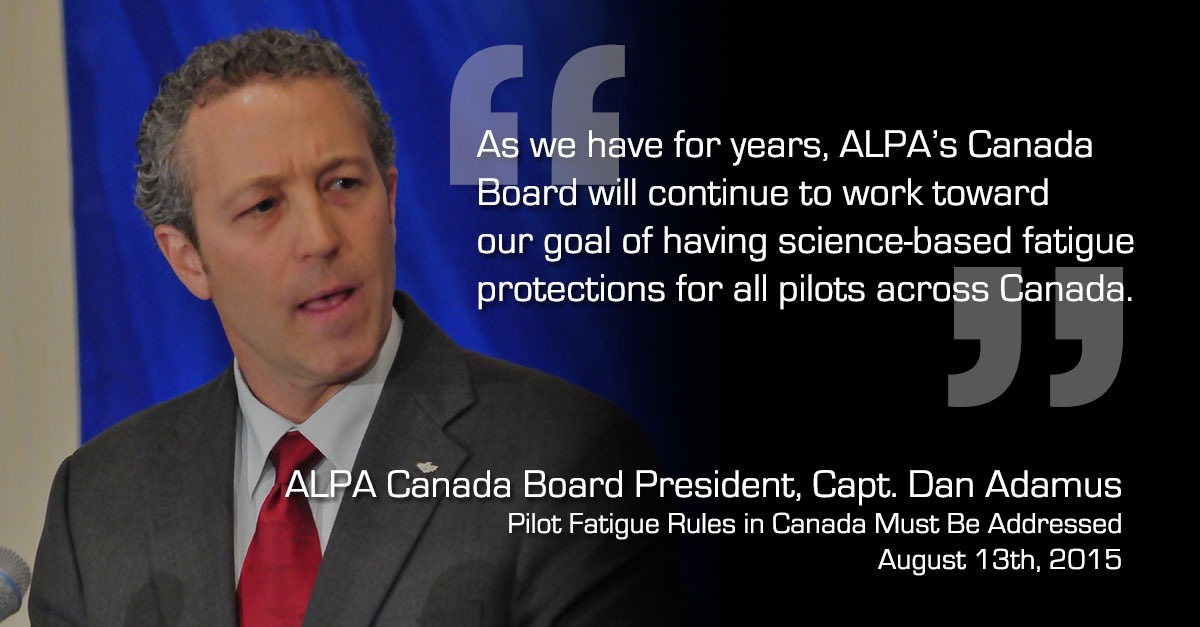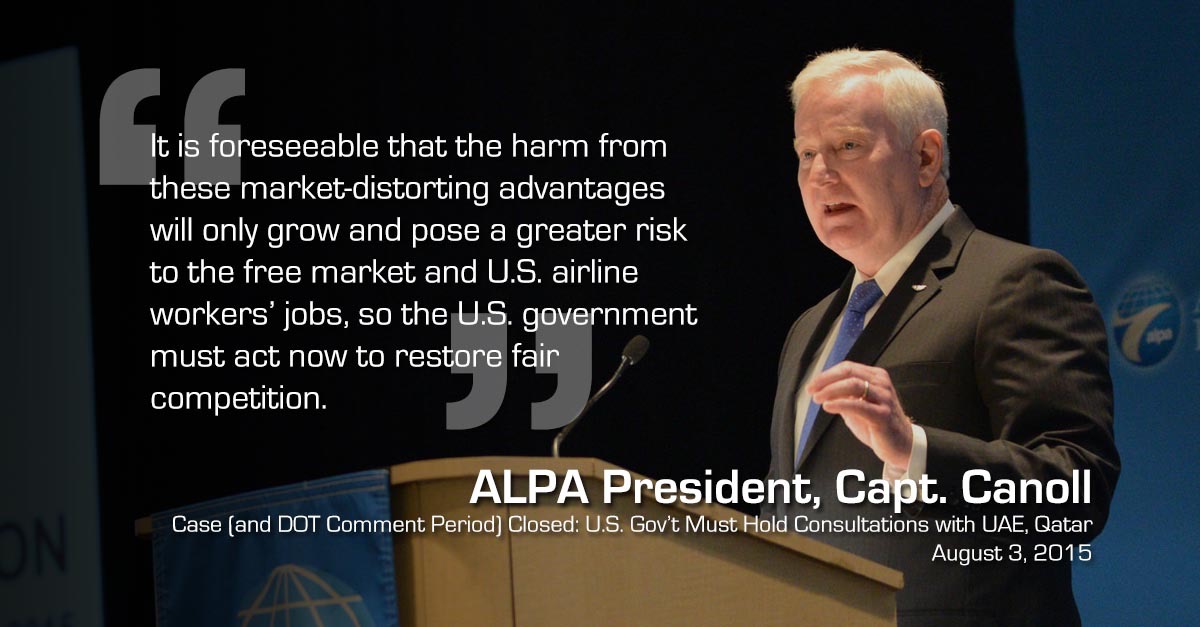Leadership From the Flight Deck
As part of ALPA’s ongoing commitment to ensure that U.S. airlines are able to compete fairly in a global marketplace, ALPA joined in comments by the Partnership for Open & Fair Skies to highlight the clear evidence found in Qatar Airways, Etihad Airways, and Emirates Airline own submissions to the U.S. Departments of Commerce, State, and Transportation of the subsidies they receive from the United Arab Emirates (UAE) and Qatar governments.
Thank you to all the pilots who’ve taken their time to schedule meetings with a member of Congress this month!
Airline pilots’ job one? Aviation safety. It’s the cornerstone of the Air Line Pilots Association International’s very mission: “To promote and champion all aspects of aviation safety throughout all segments of the aviation community.”
It’s also the reason why ALPA is the largest nongovernmental aviation safety organization in the world, powered by airline pilots who volunteer their time and expertise to make the safest mode of transportation on earth even safer. And today, ALPA proudly celebrates National Aviation Day by sharing just a few of our pilots’ many contributions to aviation safety and security. Maybe you’ll notice them on your next flight.
By Capt. Dan Adamus, ALPA Canada Board President
As the largest nongovernmental aviation safety organization in the world, ALPA has long asserted that the best safety feature of any airplane is a well-trained, well-rested, highly motivated flight crew. For years, ALPA’s Canada Board has joined together with Canadian officials and aviation stakeholders in a tremendous effort to develop flight-and duty-time regulations and minimum-rest requirements for airline pilots that are based on sound science.
Today’s closing of the Department of Transportation’s (DOT) comment period showcases yet again the outpouring of concern about the U.S. government’s need to ensure a fair marketplace by entering into consultations with the governments of the United Arab Emirates (UAE) and Qatar to get the facts on the subsidies they provide to Emirates Airline, Qatar Airways, and Etihad Airways.






